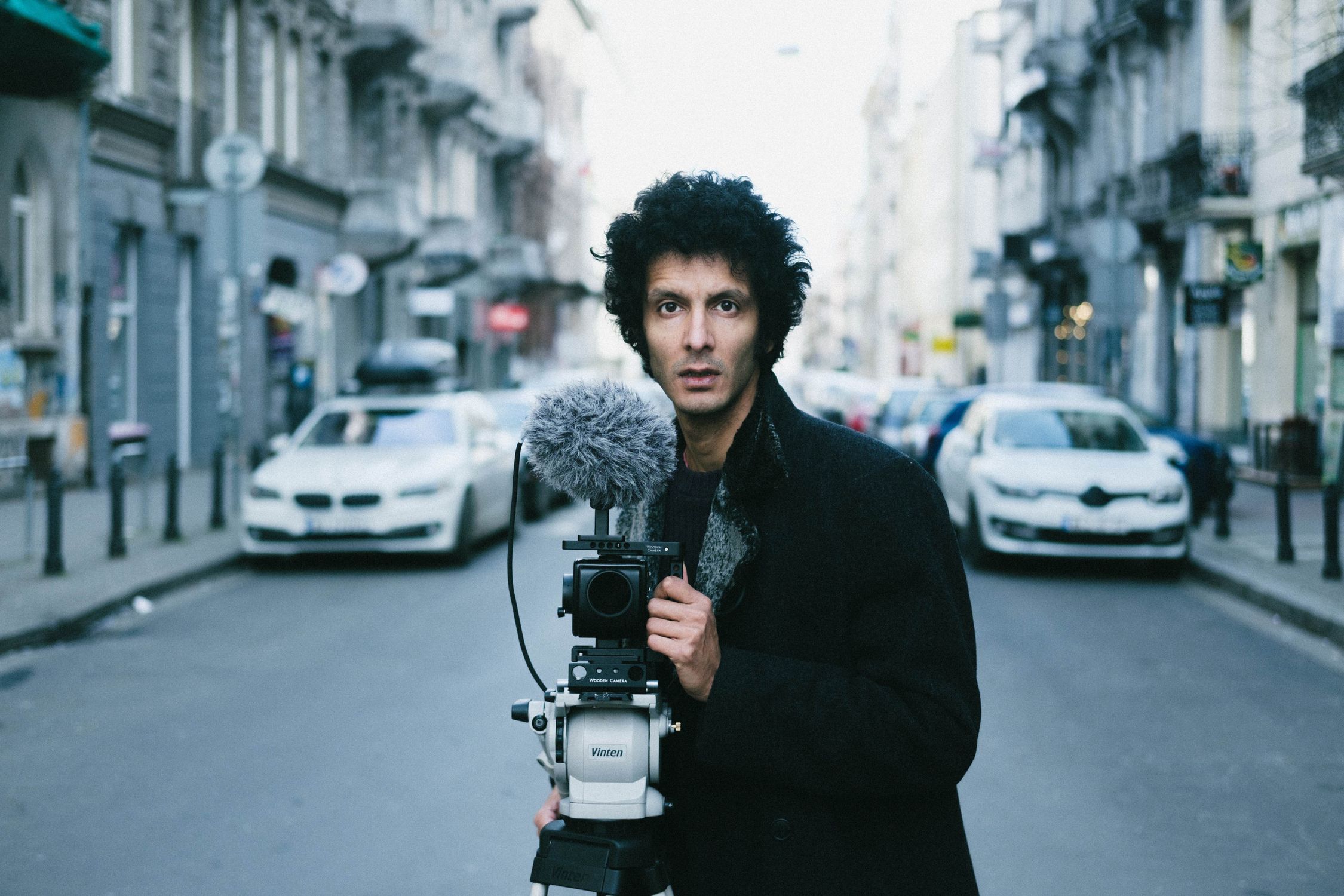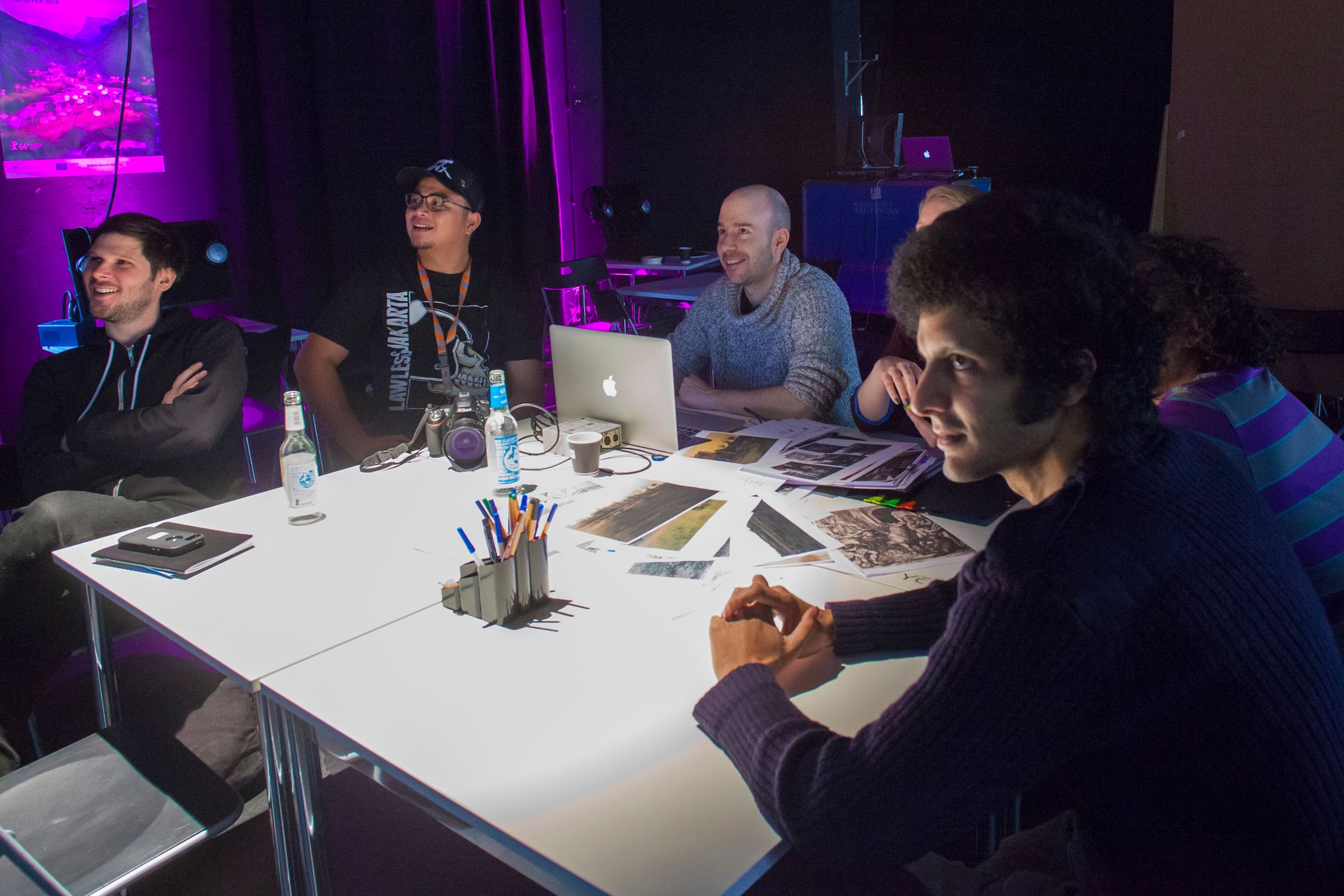Interview: Arjun Talwar, Berlinale Talents Alumnus 2016 and Nipkow Fellow
Seven years after being selected for Berlinale Talents, director and cinematographer Arjun Talwar returns to Berlin, this time as a fellow of the Nipkow Programm. The Nipkow Programm is one of the Berlin Film Residencies, supported by Medienboard and Berlinale Talents, and offers a variety of tailor-made workshops and mentoring sessions to a selection of international filmmakers every year.
In light of this exciting opportunity, we caught up with Arjun to hear all about his time at Nipkow and to find out more about the inspiration behind his work.
Applications for the Nipkow Programm are currently open to filmmakers from around the world until January 9. Berlinale Talents Alumni can apply directly through their online profile.

It’s been seven years since you were with us at Berlinale Talents. How was that experience in 2016? Was there a particular highlight for you?
I was there as a cinematographer, and appreciated the workshops we had with Roy Andersson’s DP Gergely Palos, who spoke about their eccentric style of working. Also, it was a blast just attending the Berlinale. I recall a trashy yet unforgettable Japanese film about someone with a cabbage for a head.
How was it to be back in Berlin but this time with Nipkow Programm?
It was great! A change of location is a way to digest your thoughts and get perspective on things. Roaming around Berlin is stimulating, no doubt. I spent about half my stipend at Kino Arsenal.
Could you tell us a bit about your project that you worked on at Nipkow?
The project is a comedic essay film that portrays Polish society from the viewpoint of myself, an immigrant-filmmaker from India.

How did you find your time at Nipkow? What were some of your favourite aspects of the residency?
I enjoyed having an office away from home where I could watch material, write and edit. Thanks to the Petra, John and the rest of the staff, the vibe is very peaceful and encouraging. John was great to bounce ideas off of. I also really connected with a couple of other fellows who I can only hope will be part of my professional life in the future.
You tend to work primarily on documentaries. What is it about the genre that attracts you?
I
like how documentary lets an ordinary person become a film protagonist. It’s a
strange sort of opportunity, but if they’re into it and respected... which are
big “ifs”... it turns into a meaningful experience. Shooting with a minimal
crew and a high degree of spontaneity is something else I value. The best part
is having to tweak reality until it slowly starts to become a movie. Finding a
form for the randomness of the everyday, you could say.
You are both a director and cinematographer. Do you find each role compliments and aids the other, and if so, how?
I think a DoP learns how to be a rock, doing what it takes to make the shot happen... that attitude helps with directing as well. Directing experiences benefit your approach to camera, because they teach you that what’s effective isn’t necessarily what’s beautiful or calculated. Since I was a kid, actually, I believed that operating the camera was the director’s job. Partly because in photos, famous directors always had their eye in the viewfinder. Satyajit Ray might’ve actually been operating, but most were just checking the frame or posing or whatever. I finally discovered how things work before the film school entrance test. It was a shock!
What do you think is one of the biggest challenges you face as a filmmaker?
What
seems hardest is getting your hands on the money and making sure enough people
end up watching the film. Sometimes you feel you’re practicing a dying art.
What is your biggest inspiration, what drives and motivates you in your work?
Most of the time, the inspiration comes from encounters with unusual people... someone I meet by chance, who might end up becoming a documentary character or inspiring a fictional one. Besides that, I'm also motivated by the therapeutic aspect of filmmaking. It's a way of dealing with my own internal struggles.
Arjun
Talwar grew up in Mumbai and Delhi. He studied cinematography at the Polish
National Film School in Lodz. His documentary «WHERE I CAN’T BE FOUND», about a
hermit living in a South Indian village, won the prize for best short at the
New Horizons film festival in 2014, and was nominated for the Silver Eye award
at Jihlava. The film «HABITAT» was screened at various festivals, among them
Visions du Reel and Tampere. In 2018, Arjun directed the feature-length
documentary, «A DONKEY CALLED GERONIMO», a fable about the inhabitants of a
tiny island, who having lost their paradise, must return to the harsh reality
of the mainland. The film premiered at DOK Leipzig and was released in cinemas.
That year, his hybrid short «DEPORTATION» premiered at FID Marseille. Arjun’s
upcoming documentary «A HOLE IN THE WALL» is currently in production and
featured at IDFA Forum this year.